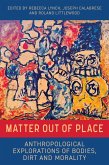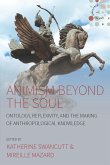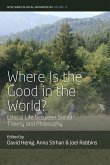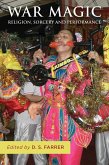In many parts of the world the "white man" is perceived to be an instigator of globalization and an embodiment of modernity. However, so far anthropologists have paid little attention to the actual heterogeneity and complexity of "whiteness" in specific ethnographic contexts. This study examines cultural perceptions of other and self as expressed in cargo cults and masked dances in Papua New Guinea. Indigenous terms, images, and concepts are being contrasted with their western counterparts, the latter partly deriving from the publications and field notes of Charles Valentine. After having done his first fieldwork more than fifty years ago, this "anthropological ancestor" has now become part of the local tradition and has thus turned into a kind of mythical figure. Based on anthropological fieldwork as well as on archival studies, this book addresses the relation between western and indigenous perceptions of self and other, between "tradition" and "modernity," and between anthropological "ancestors" and "descendants." In this way the work contributes to the study of "whiteness," "cargo cults" and masked dances in Papua New Guinea.
Dieser Download kann aus rechtlichen Gründen nur mit Rechnungsadresse in A, D ausgeliefert werden.









